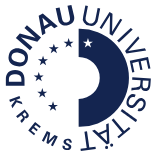The introduction of Danube University Krems is as follows:
Introduction
Danube University Krems is one of the leading universities of continuing education in Europe, focusing on providing educational services for working professionals, offering master's programs and short courses in five research fields, with a particular focus on interdisciplinary and future-oriented special fields such as the combination of medicine and management, education and new media, law and social sciences, etc.
Overview
Number of students: more than 8,500 students and 17,000 graduates from 90 countries.
Course settings: Courses are mainly concentrated at the postgraduate level, including but not limited to master's programs in education and training, engineering and technology, medicine, economics and business management, humanities, etc.
History and establishment time
The school was established in 1994 and is one of the younger higher education institutions in Austria.
School strength
Teaching resources: With nearly 20 years of experience in the field of postgraduate education, it combines it with innovation and the highest quality research and teaching standards. The school has several research institutes to provide students with practice and research opportunities and promote academic development in various disciplines.
Faculty: It has a high-quality faculty team. The teachers not only have a deep academic background, but also have rich practical experience. They can provide students with high-quality education and guidance, help students combine theoretical knowledge with practical applications, and improve their professional ability and comprehensive quality.
International Cooperation: Actively carry out international cooperation and exchanges, and establish extensive cooperative relations with universities and institutions around the world, providing students with opportunities for international exchanges and internships, broadening their international vision, and enhancing their competitiveness in the international job market.
Institutional Nature
Public non-profit university.
Educational Philosophy
Focusing on current social, organizational and technological challenges, it is committed to developing innovative, market- and customer-oriented courses. Emphasizing interdisciplinary cross-links, focusing on the scientificity and practicality of teaching and research, and adopting innovative teaching and learning methods to meet the learning needs of working professionals and cultivate their professional ability and comprehensive quality in their respective fields.
Key laboratories and disciplines
Key laboratories: The school has special laboratories and research centers in some disciplines, equipped with advanced equipment and technology, which provide strong support for scientific research and teaching. For example, laboratories in medicine, biology and other disciplines can meet the needs of experimental research and teaching practice in related fields.
Key disciplines: Medicine, biology, liberal arts and social sciences are more prominent. In the field of medicine, pathology, psychiatry, surgery, nursing, public health and other disciplines are the main research directions; biochemistry, genetics, neuroscience, paleontology, immunology and other disciplines in the field of biology are the key research directions; liberal arts and social sciences cover political science, law, philosophy, sociology, history and other main research directions.
Department
The school has multiple departments covering different disciplines such as education, engineering, medicine, economics, humanities, and law, providing students with a variety of professional choices and learning paths. The departments collaborate with each other to jointly promote the development of interdisciplinary research and education.
Ranking
Ranked 1740th in the global ranking in 2024 and 15th in Austria. There are also corresponding rankings in the fields of medicine, liberal arts and social sciences, biology, etc. For example, the field of medicine ranks 14th in Austria and 1863rd in the world; the field of liberal arts and social sciences ranks 16th in Austria and 2597th in the world; the field of biology ranks 17th in Austria and 2833rd in the world.
Expenses
Undergraduate tuition: Locals and EU residents can study for free, and foreigners start at $425 per year.
Master's tuition: varies depending on the major, such as the tuition for the master's program in education and training is $6,680/year, the tuition for the professional MBA - biotechnology, pharmaceutical and medical technology management is $8,907/year, and the tuition for the EU regulatory affairs major is $9,909/year.
Campus
Located on the Danube River in Krems, Austria, the campus environment is beautiful and provides students with a good learning and research atmosphere. The school has advanced teaching facilities, including modern teaching buildings, libraries, laboratories, etc. The library has a rich collection of professional books and journals in various disciplines, providing sufficient resource support for students' learning and research. In addition, the campus also has student dormitories, restaurants, sports facilities, etc., providing convenient conditions for students' lives.
-

Graz University of Technology
-

University of Linz
-
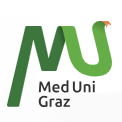
Medical University of Graz
-

University of Leoben
-
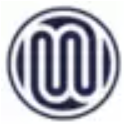
Medical University of Vienna
-
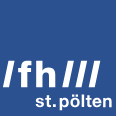
St. Pölten University of Applied Sciences
-
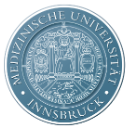
Innsbruck Medical University
-
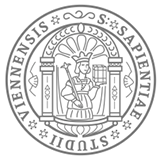
University of Vienna
-
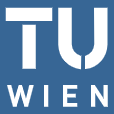
Vienna University of Technology
-

University of Natural Resources and Applied Life Sciences, Vienna
-

Mesoamerican University
-

Istmo University
-

Mariano Galvez University of Guatemala
-

Regional University of Guatemala
-

Galileo University
-

Francisco Marroquín University
-

Rafael Landívar University
-

University of the Valley of Guatemala
-

University of San Carlos of Guatemala
-

Technological Institute of Tlaxcala Plateau
-

Golfo University
-

Technological University of South Sonora
-

Technological University of Huejotzingo
-

Tizimín Institute of Technology
-

Chilpancingo Institute of Technology

